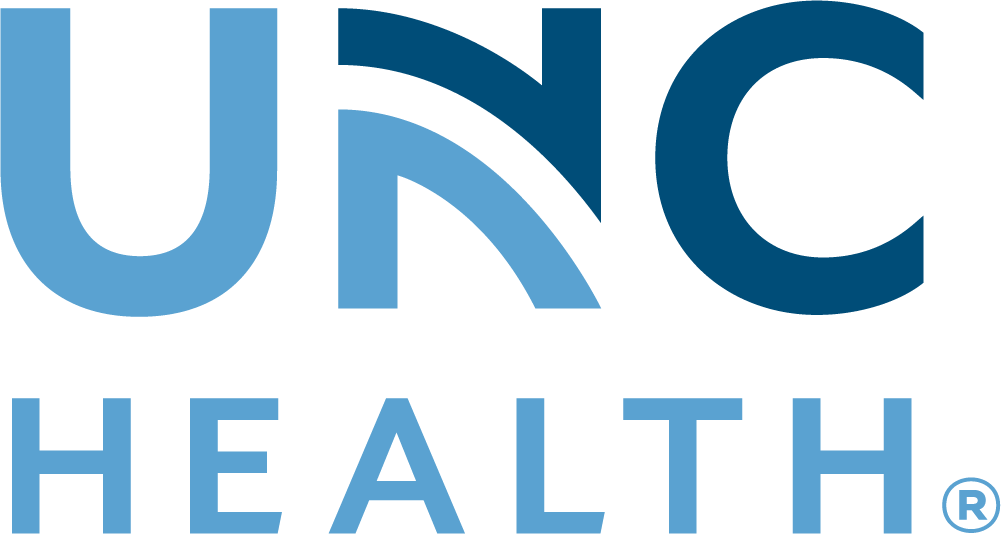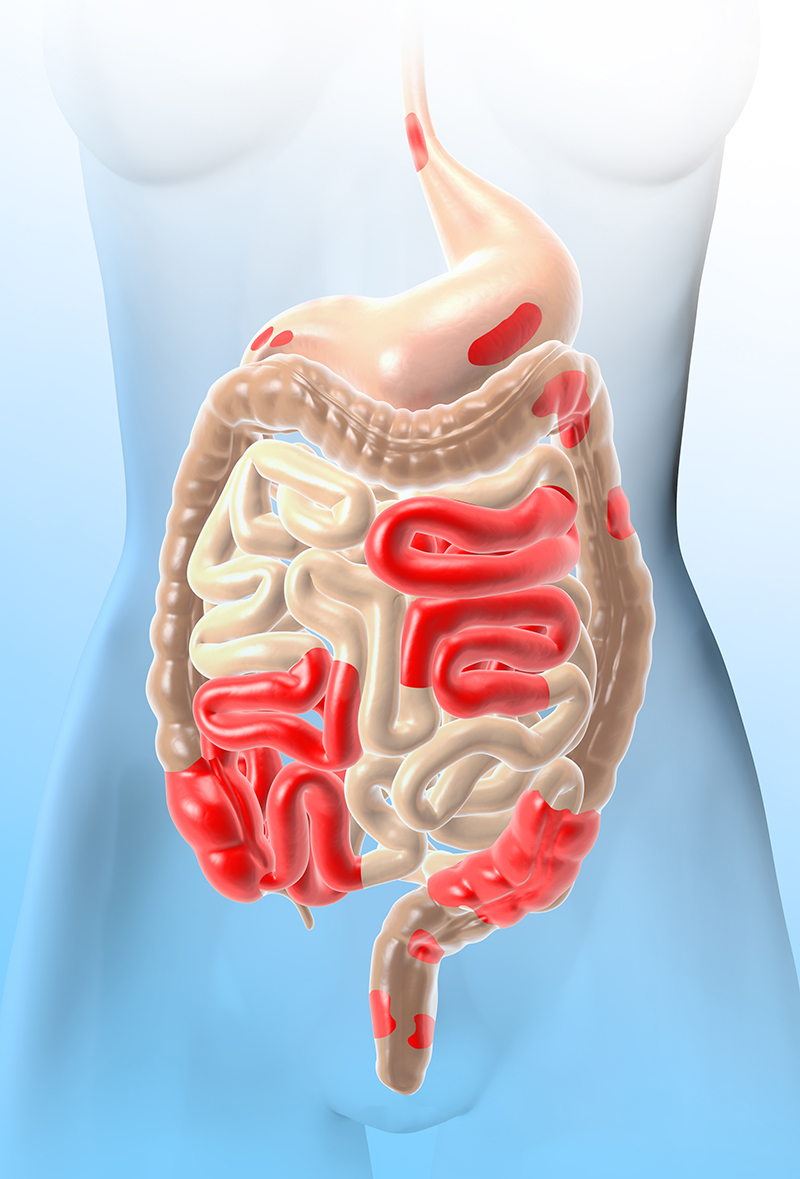If you have tried other treatments for Crohn’s disease and they have not been effective, Crohn’s disease surgery might be the suggested solution. You may also need surgery if you’re treated in an emergency (such as with a blockage or bowel tear). At the Colorectal Division of North Carolina Surgery at UNC REX in Raleigh, Crohn’s disease surgery is performed by our highly trained and experienced colorectal surgeons.
What is Crohn’s Disease?
Crohn’s disease is a chronic inflammatory bowel disease (IBD) that causes inflammation of the digestive tract, which can lead to severe digestive issues. It most commonly affects the small intestine and beginning of the colon, though it can impact any part of the gastrointestinal tract from the mouth to the anus.
Common symptoms include:
- Persistent diarrhea
- Abdominal pain and cramping
- Fatigue
- Weight loss
- Reduced appetite
- Fever
The exact cause of Crohn’s disease is unknown, but it’s believed to result from an abnormal immune response, genetic factors, and/or environmental triggers. The disease often presents in cycles of flare-ups and remission, making management crucial to maintaining quality of life.
How Do I Know If Surgery Is Right For Me?
Deciding if Crohn’s disease surgery is right for you depends on several factors, including the severity of your symptoms, how well you respond to medications, and the presence of complications such as strictures, fistulas, abscesses, or bowel obstructions. Surgery is usually considered when medical treatments no longer control symptoms effectively, or when complications cause significant pain, malnutrition, or risk of infection.
Surgical Options for Crohn’s Disease
Although Crohn’s disease cannot be cured, surgery is sometimes used to treat symptoms and improve your quality of life. Two major categories of Crohn’s disease surgery are:
Abdominal Crohn’s Disease Operations
Abdominal Crohn’s disease surgery targets the small bowel or colon. During the procedure, your surgeon will remove the diseased portion of your small bowel or colon and reconnect the healthy tissue, if appropriate.
Depending on the location of the diseased tissue, your surgeon can perform this either laparoscopically (using small incisions) or utilizing a larger incision to access the abdomen. Together, you and your surgeon will discuss which approach is best for your condition.
Perianal Crohn’s Disease Operations
Perianal Crohn’s disease procedures involve addressing conditions affecting the anus and surrounding areas, including strictures, abscesses, and fistulas. Sometimes, to relieve symptoms, these conditions only require an incision to drain infected fluid.
In those cases, your doctor can perform this surgery on an outpatient basis, and you can go home the same day. However, if your condition requires a more extensive procedure for advanced Crohn’s disease, you may be admitted to the hospital for surgery and stay there to recover.
Benefits of Crohn’s Disease Surgery
- Relief from severe symptoms like pain and diarrhea
- Removal of damaged or diseased sections of the intestine
- Improvement in quality of life and daily functioning
- Resolution of complications such as strictures, fistulas, or abscesses
- Reduced need for long-term medication in some cases
- Improved nutrient absorption and overall digestive health
- Increased chance of long-term remission
Schedule an Appointment
If you’re struggling with any of the symptoms mentioned above and you or your primary care doctor believe the best option is Crohn’s disease surgery in Raleigh, our elite colorectal surgeons are here to help. Contact the Colorectal Division of North Carolina Surgery at UNC REX to schedule your first appointment.
Frequently Asked Questions
Will surgery cure Crohn’s disease?
No, surgery does not cure Crohn’s disease because it is a chronic condition that can recur — even after affected sections of the intestine are removed. However, surgery can significantly reduce symptoms, manage complications, and improve quality of life, often leading to long periods of remission.
Will I need to change my diet after surgery?
Postoperative care for Crohn’s patients usually includes following a liquid or soft diet before gradually reintroducing solid foods. Long-term dietary adjustments may be necessary to manage symptoms and promote healing.


